Buhari’s Campaign Promises and Urgent Need of the Nigerian State
By Debo Adeniyi
LAGOS JULY 10TH (URHOBOTODAY)-It is a historic experience for the first time since 1999 to have a change in government where the opposition party is taking over the affairs of governance of the center. It is also very painful and unfortunate that the beginning of the popular long-awaited change train that Nigerians have been expecting is now being christened with the National Assembly and leadership crisis which has slowed down the change movement and diverted the focuses of Nigerians from the promises, goals and motives of the APC lead Government. In fact, the most talked about and debated issues in the media in the last few weeks across the country have been the National Assembly Leadership crisis.
At this point, it is essential that we stay focused and for President Mohammadu Buhari to start without any delay in implementing some of his campaign promises.
Let us at this moment analyse his key promises that are most pressing on Nigeria, show their present status, then the challenges he (the president) may meet with achieving them and the way forwards.
It is just an established fact that the president won the elections for a promise to tackle insecurity, corruption, Power, Infrastructural development, Education, Unemployment, Agriculture, Health etc. and to also lead Nigeria to greater prosperity.
Now let us now analyse the most three pressing components which are:
1. Security
2. Corruption
3. Power/Electricity
On Peace and Security
One of the responsibilities of any responsible government is to protect the lives and properties of the citizenry. The government’s inability to protect civilians from organized killings conducted by a non-state insurgency group has led us to where we are today. Since May 29 that the new governments led by President Mohammadu Buhari has taken over power, there have been several attacks by the dreaded Boko Haram and more than 700 people have lost their lives, and this is a serious point of worry for us as Nigerians and the Government.
At this point, speedy and total overhauling of the security agencies is not negotiable.
The current state of our security agencies is totally in a state of decay, corruption, and is heavily politicised. The emergence of the Boko Haram sect as the most potent threat element in the country exposed the preparedness level of the security agencies, including the military, police, Department of State Service, DSS and other security agencies in the face of conflicts, this has brought to the fore, the urgent need to embark on a comprehensive overhaul of the agencies in terms human development, upgrade of the equipment and structure of the forces.
Before the general election, the activities of the insurgents got to the peak and this forced the country to postpone her general elections for another six weeks as a direct reaction to the activities of the insurgents who had promised to disrupt the elections. According to military sources, new advanced equipment to fight the insurgents came into the country after the postponement of the election. Within the stipulated six weeks and with the help of the joint forces, the Nigerian military were able to recapture all the local government areas and were very close to completely wiping out the Boko Haram insurgents from the country. The signal from this event reveals the need to place priority on improvement of the security agencies by equipping them to face any security situation that may spring up like the Boko Haram.
The outgoing British High Commissioner to Nigeria, Andrew Pocock, giving an insight into solving Boko Haram menace, according to him at a farewell interactive session with newsmen in Kaduna on Monday, Mr. Pocock said: “We don’t look at the problem in the Northeast as purely a security problem. It is not something that can be resolved with the use of the army or the police or the security agencies only. It is not going to be solvable.
There has to be three different things; the first is properly articulated security efforts. The second is that, there has to be a different kind of politics in the Northeast, where state and Federal Government work together instead of against each other and where there is a much more common and agreed agenda about what needs to be done to correct many years of mis-governance and of poor policy in the North-east.
“The third dimension has to be a developmental and economic uplift agenda. Too many, particularly young people are not only without employment in the North-east but because of the insurgency are without any economic prospect whatsoever. No one can live without hope and indeed if the economic and the developmental aspect of these are not addressed, the opportunities for radicalisation are much greater. So, those three things are employed in tandem, the security instrument, politics and development/economic approach.”
The security agencies need additional and updated equipment to tackle insecurity in this present time. They also need improved welfare to give a moral boost to the officers and men who have laid their lives on the line to make sure that the populace lives in safety and handsome reward is in place for the combatant as a form of hope for their families even if they eventually lost their lives in the battle field. Discipline should also be established in the military and other security agencies.
However, the government is under an obligation to make sure that the country’s borders are well guarded against infiltration, especially in the face of international terrorism which is gradually creeping into most countries of the world. Investment into technology for security would also play a major role to improve the performance of the security agencies. The new government led by President Muhamodu Buhari must make advance of security infrastructure a top priority. This must go beyond mere allocation of huge budgets which do not trickle down to physical development.
On Corruption
President Muhammadu Buhari had a rare reputation as a fighter against corruption during his time in charge of Nigeria from 1983-85, a lot of his promises connect to it. He said during one of his campaigns, “If we don’t kill corruption, corruption will kill us”; He also said after resuming office in Aso rock that Nigeria’s treasury is “virtually empty” and vowed to recover billions of dollars “stolen” under previous administrations.
I think tackling corruption in Nigeria with the present systemic abnormalities will be tough and practically difficult for Buhari. He may eventually reduce it at the long run but there are certain constraints that may handicap him especially in the present imbalance democratic system of the nation.
Some of these constraints are:
1. He who comes into equity must come with clean hands: Charity they say begins at home, and for President Muhammadu Buhari to be honourable and sincere in his fight against corruption, he must first probe the source of wealth of his APC bigwigs, that sponsored his election, as this will give Nigerians a huge assurance that he is ready to tackle corruption. I can say boldly at this point that a larger percentage of the monies used during his campaign were taken away from the public treasuries. It is imbalance and unfair to go after only corrupt politicians who are members of other political parties alone as corruption is rooted and existing in all political parties and facets of the society.
It is hard to believe that any politician will donate several billions on presidential or governorship campaigns in Nigeria without part of the funds stolen from the public treasury. If not for the recent intervention by the Federal Government as approved President Muhammadu Buhari as a bail-out move, over 18 states in Nigeria were owing salaries of workers especially the APC states, and the worst was Osun state owing about 7 months salaries, and it is of general believe that treasuries at both the state and federal level were emptied as a result of the election funding. How much is the salaries of the Governors who sponsored Buhari’s Election or what businesses are they doing? Where are the businesses located? So where did they get billions of Naira donated to sponsor his election? These are very critical questions that must be answered. I am not saying Buhari should not probe the last administration, but he must not be selective and go only in the opposite direction, he must probe everybody.
2. The present National Assembly Leadership: It will be very difficult for President Muhamadu Buhari to succeed in his fight against corruption with Senator Bukola Saraki’s Led national assembly and Ekweremadu as the Deputy. “As deputy senate leader, Ekweremadu is automatically the Chairman, Senate Committee on the Constitution Amendment. This is a sensitive position that ordinarily should not be allowed to go into the hands of the minority and the opposition party with different ideology. The presidency will need laws and regulations upon which the anti-graft agencies are currently operating to be updated, reviewed and amended, so National Assembly needs to be on the same page with him so that they can make amendments to such laws that may be pictured by the executive. Bukola Saraki who is the Senate president today is among the 18 -20 ex-governors currently facing criminal trial having many pending fraud and corruption cases with the EFCC, so it will be difficult for Senator Bukola Saraki to boldly call someone corrupt while he himself is having the tag of corruption over him.
Presently, list of the ex-governors elected as senators, who allegedly have fraud cases against them, whether old or new, includes Bukola Saraki, Theodore Orji, Adamu Aliero, Sam Egwu, Joshua Dariye, Danjuma Goje, Abdullahi Adamu, Senator George Akume.
Even former Governor Goodswill Akpabio has been petitioned and accused of gross abuse of public trust, embezzlement of public funds, financial recklessness, and laundering Akwa Ibom State public funds for his own enrichment.
Others are Stella Oduah car purchase scandal, even former Governor DSP Alamieyeseigha of Bayelsa State who was arrested in London for money laundering but granted presidential pardon recently in now our law maker at the upper chamber. Senator Buruji Kashamu having serious extradition case against him by the US Government etc
So how do we have these bunches of corrupt elements in the senate and believe the fight against corruption by the presidency will be easy? All these are critical points of worry.
3. Corrupt State of the Judiciary: There is a growing perception backed up by empirical evidence that justice is purchasable and it has been purchased on several occasions in Nigeria
Nigerian people have justifiably blamed lawyers and judges for frustrating the anti-graft agencies from successfully prosecuting politically exposed persons and other members of the ruling class accused of corrupt practices and money laundering. Even the chairperson of the Economic and Financial Crimes Commission (EFCC), Ibrahim Lamorde, said during his defence of the EFCC budget for 2013, Lamorde tried to evade responsibility for the poor achievement record of the commission.
He said the judiciary had frustrated the EFCC’s efforts to arrest and brings to trial the chief architects of crime because the judiciary acted in concert with criminals and their defense lawyers to use the legal process to avoid prosecution or to delay trial. Lamorde illustrated how high profile criminals used the legal process to forestall their trial and prosecution. He said: “We have an example of a case we charged to court in 2006; for this very case, we have gone to the Supreme Court twice on just interlocutory applications.
They will file this, the judge will overrule them, they will go to the Court of Appeal and lose there, but they will still go to the Supreme Court. At the Supreme Court, when they lost, they will be called upon to go to the trial judge for the case to continue.” He explained that his organisation has adopted an unusual strategy to trap the shifty criminals. “Unfortunately,” he said, “these are people who have the resources to drag these cases indefinitely and perpetually.
In recent time, some Very Important Personalities and aliens, who cannot be brought to book in Nigeria for committing economic and financial crimes, have been convicted abroad. Apart from exposing the country’s legal system to ridicule before the international community such conviction is a serious indictment of the members of the legal profession. Three cases, which have recently questioned the commitment of the country to tackle the menace of corruption are reviewed are: The trials of the former Chief Executive of the defunct Intercontinental Bank Plc., Erastus Akingbola and former governor of Delta State, James Ibori as well as the celebrated Halliburton bribery case. The most recent of this is the case of a sitting senator Buruji Kashamu v NDLEA over his extradition request by the US Government. The court presently has barred any anti-graft agency or security operatives to arrest detain or even extradite Kashamu to USA pending the case is concluded here, and the case if well pursued by him may drag on till eternity.
4. The Decay and corrupt state of the Civil Service: It is of a notion today that the civil servants are even more corrupt than the politicians. The civil service is an integral part of societal development in the developed countries of the world. In the public sector, we have the corruption of the political class which is pervasive, destructive and harmful and the corruption of the civil servants which are more deadly and possess the potential for mass destruction of both living and non-living things in the polity.
The corruption by civil servants remains the worst form of corruption in the system. The biggest corrupt civil service element is the Nigerian National Petroleum Corporation (NNPC) and its subsidiaries. Using recent analysis of Barrister Monday Ubani, the immediate past president of Nigerian Bar Association (NBA), Ikeja Branch, who said “Between 2009 and 2012 their IGR was a total of N6 Trillion but they did not remit a kobo of this amount to the Federation Account. The Central Bank of Nigeria (CBN), according to the report, raked in N2 Trillion between the same time and only remitted 7.5 percent of that amount to the Consolidated Revenue Fund. The Federal Airports Authority of Nigeria (FAAN) generated a total of N112 Billion and remitted only 0.04% of this to the government treasury; the Nigerian Maritime Administration and Safety Agency (NIMASA) raked in a total of N122 Billion through IGR and remitted 7.43%. In the similar vein, the Nigerian Ports Authority (NPA) generated a total of N442 Billion but paid in only 5.59% of this.
The Nigerian Communications Commission (NCC) generated N141 Billion and remitted only 8.53% of the sum. Bank of Industry (BOI), Joint Admissions and Matriculation Board (JAMB), Corporate Affairs Commission (CAC), Federal Radio Corporation of Nigeria (FRCN), National Agency for Food and Drug Administration and Control (NAFDAC), West Africa Examinations Council (WAEC), National Pension Commission (PenCom), Standards Organisation of Nigeria (SON), Federal Mortgage Bank of Nigeria (FMBN), Federal Inland Revenue Service (FIRS), National Broadcasting Commission (NBC), and Nigerian Television Authority (NTA) are all guilty of this non-remittance to the Consolidated Revenue Account of the Federation”.
A breakdown of investigation showed that while in 2009 the agencies raked in IGR to the tune of N3.06 Trillion, remittance to the treasury was N46.8 Billion or 1.53%; in 2010, N3.07 Trillion was generated but remittance was a paltry sum of N54.1 Billion or 1.76%. In 2011, N3.17 Trillion was generated but remittance was N73.8 Billion or 2.33%. These Agencies have been exploiting the loophole in the Fiscal Responsibility Act of 2007 which allows agencies to remit to the treasury based on an operating surplus framework. What agencies do is to spend as much as possible, leaving little or no surplus for the treasury. As said earlier all the agencies are in breach of this extant law.
Imagine, if all these Internally Generated Revenues are properly accounted for and remitted to the treasury, these funds could be used for capital projects to develop the country and create jobs for the teeming jobless youths. Why will government agencies spend money that is not appropriated by the National Assembly you may ask? It is pure impunity, he said.
If we go back to records, there were many occasions when findings were made, either by the outgone Seventh National Assembly, their committees and even by established institutions against the Nigerian National Petroleum Corporation and its subsidiaries of non-remittance to the Federation Account, yet those findings were either ignored or at best snubbed at by the then Minister of Petroleum, Mrs. Deziani Allison Madueke. Furthermore, proceedings in court against subsidy scammers of year 2012 have remained at the preliminary stage till date with no serious attempt made to ensure successful prosecution of the culprits.
Way forward on Corruption
President Muhammadu Buhari should be ready to probe any corrupt persons irrespective of his/her political party, tribe, religion and association, what’s good for the goose is good for the gander. Also the National Assembly must be on the same page with him sharing the same vision and ideology towards ending corruption, there must be an expedient reform and overhaul of the judiciary, civil and a thorough comprehensive and cohesive policy of accountability must be implemented, beginning from proper civil service training and monitoring so as to achieve a maximum result. Lastly the president should recover all the stolen money from corrupt political office holders and civil servants who have bled this country to the adverse position we are today. Not only must he recover all from them, he must also punish them in order to send a clear message that the country will no longer tolerate the level of impunity with which these characters bled Nigeria’s treasury. This is the clear way for the incumbent President to go in order to retain the confidence and trust of the citizens in his new government.
On Power
Over the years, the issue of power generation has been Nigeria’s biggest problem. Since the advent of the Fourth Republic in 1999, power has been placed on the front burner, without an end to the problem. Past administrations proffered solutions to tackle the hydra in the power sector but have virtually failed in this regard. Nearly 19 months after the handover of power assets to private companies, power generation is in an all-time low. This is because the majority of power plants are operated by gas, and two important gas pipelines have been vandalised in recent weeks and the government has been unable to secure them, leaving the country in darkness for longer than ever before.
The World economic forum ranked Nigeria 141 out of 144 countries in its 2014 quality of electricity supply index. Currently, electricity generation stands between 2,500-3, 500 MW, grossly inadequate for a population of 170 million people. The unbundling of the Power Holding Company of Nigeria (PHCN) and the privatisation of generation and distribution has not resulted in improved electricity supply. It has become a bumpy ride since the privatisation exercise as the industry still faces numerous challenges in the generation, transmission and distribution of electric power. This is in spite of the enormous investment by the previous governments. Poor electricity supply has negative impacts on economic growth and Job creation. The quality of electricity supply is under a positive correlation with the Gross Domestic Product (GDP) per capita.
We will not have any meaningful progress till we are in a position to solve the power issue. We won’t have an inclusive GDPA unless we tackle power. The power issue is a great one and it’s preventing everyone from progressing. In Uganda, they increased the power to 230 Megawatts and the following year, their GDP grew by additional 4%.Technology has changed, 38% of power being generated in America is by coal and not depending on only gas. The government has to sit down and find a solution to power.
President Muhammadu Buhari, must build on existing reforms in Nigeria’s electricity industry to ensure its quick revitalization and not otherwise to the ongoing privatisation process.
Consumers who bear the brunt of power shortages even in the face of constant extortion for services that are seldom delivered, also expects that the government will tackle instances of vandalism of critical assets like gas pipelines that transmit gas to power stations to ensure improvement in power generation as well as impress it on the distribution companies to improve on their digital metering of consumption as against estimated billing which has been found to be unfair.
The government should Decentralise Electricity generation by attracting investment in renewable energy, also remove the limit put on states on the amount of megawatts of power they can generate, and lastly the government to adopt a regional grid system as against the national grid system. National grid system is wasteful and uneconomic because every power generated is sent to the transmission centre where it is allocated to various parts of the country and in the process of transmission to places far away from the centre at Osogbo, a lot of power is lost. The losses are compounded by the weak and unstable transmission network. Therefore, with regional grid system, power generated would not travel long distances before utilisation.
Conclusion
If the new government led by General Muhamodu Buhari can put serious structures and policies in place to fight insecurity to a standstill, this will make Nigeria safe to coexist, make the environment safe for foreign investors and give room for development. Also the ability to tackle corruption, will improve the economy of the nation, increase the GDP which will lead to economic growth and development and lastly the improvement of power supply will encourage investment and industrialisation which inline will foster employment of youths and improved standard of living, economy etc. When the Government gets this three critical elements right (Security, Corruption and Power) it will be easy to achieve other aims like employment, Education, Health, Agriculture, Infrastructural development etc.
Debo Adeniyi writes from Lagos (infotecinv@gmail.com)








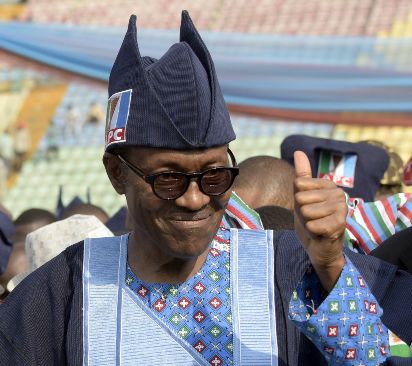
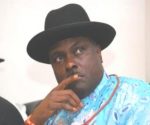
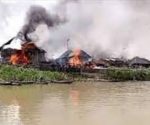



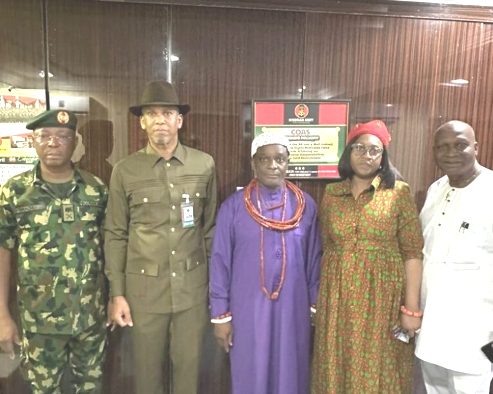
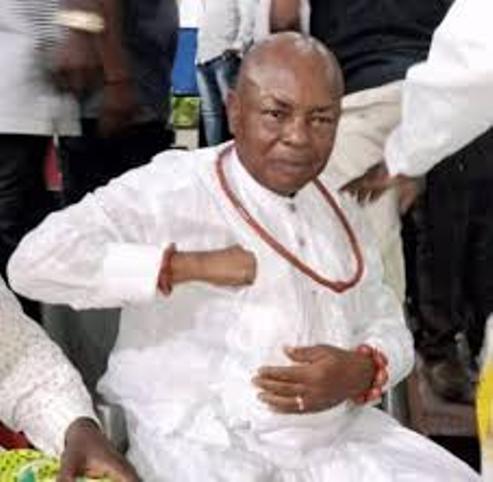
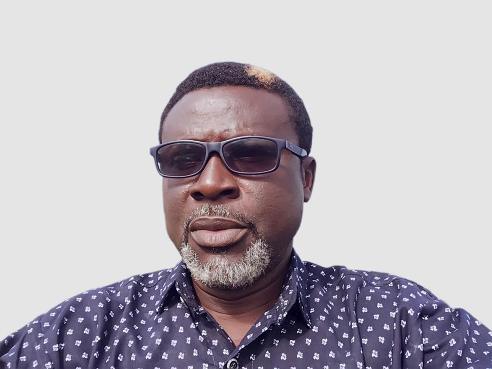
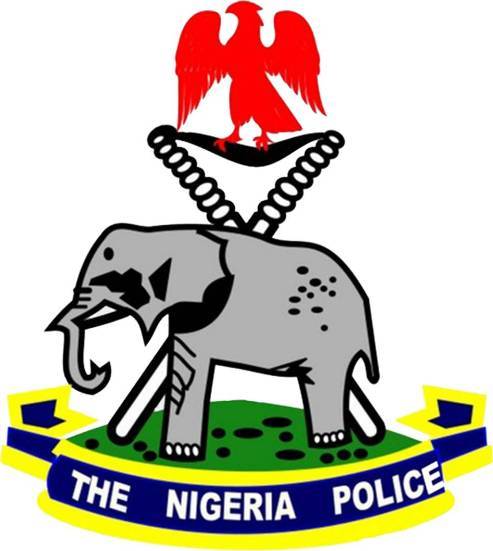
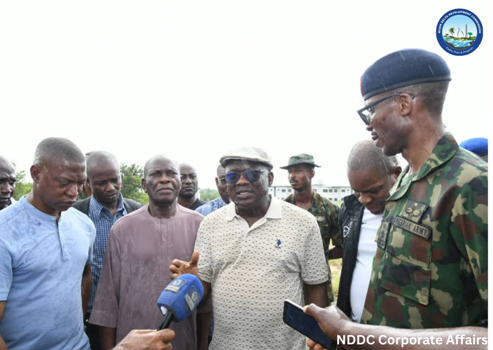

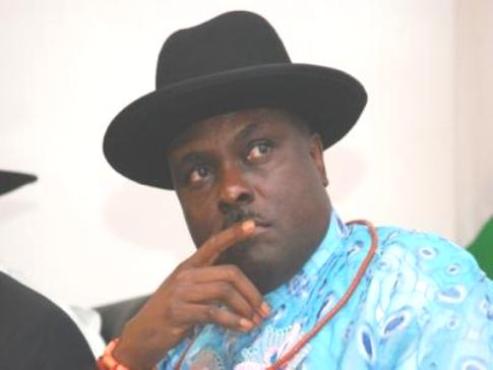


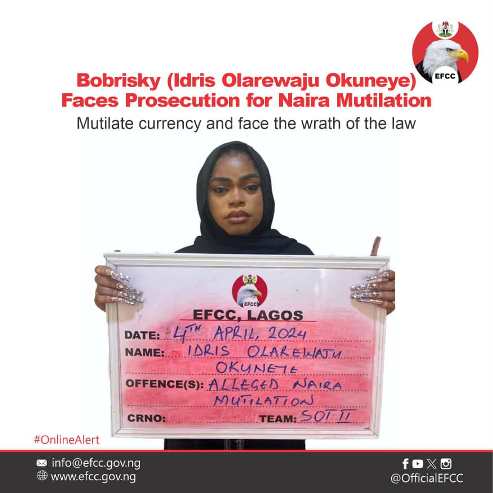
A good write up! Well done! But DSP Alamieyeseiya is not a senator as pictured in this paper!